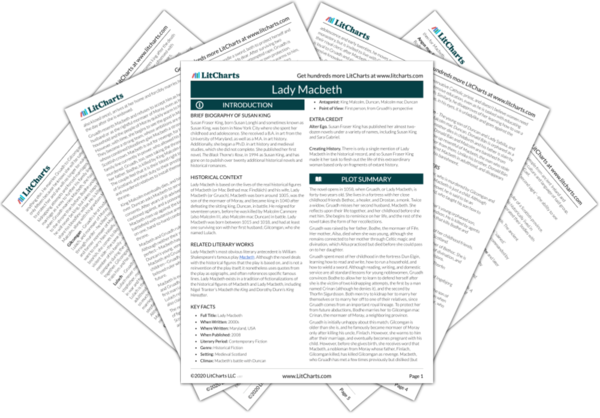Tír na n’ Óg Quotes in Lady Macbeth
Our priest baptized the child to protect her soul, and the midwives bathed her in warm milk and lifted her in their hands as they spoke charms against all manner of ills: fire, drowning, illness and injury, fairies, bewitchings, elf bolts, all conceivable harms. Bodhe named his new daughter Brigid to further protect her. Yet within days, Ailsa and tiny Brigid were buried together on a hill overlooking the sea, and I, who heard equally the catechism and the Celtic tales, wondered if their souls would travel to heaven or Tír na n’Óg, the paradise beyond Ireland in the misty realm, which our bard spoke about. […]
“Ailsa of Argyll is dead,” [Father Anselm] said bluntly, stopping, “and her soul needs our prayers, not trinkets, so that she may be forgiven by the grace of God. Perhaps she need only spend a little time in purgatory before her soul is purified of sin.”
“My mother will go straight to heaven on the strength of her character,” I said. “Though she might prefer Tír na n’Óg, where she would not be judged.”










